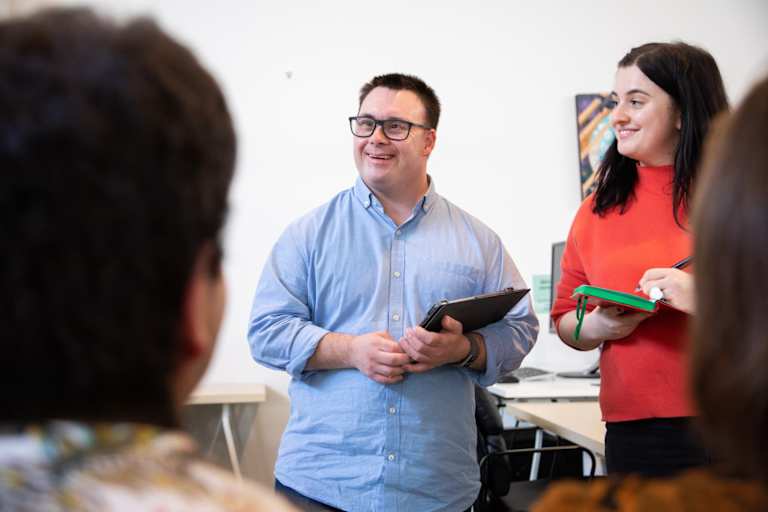How to Become an Licensed Counselor in New Jersey
- Licensure Requirements
- How Long Does it Take?
- Out-of-State Licensing
- Licensing Renewal
- Salary Expectations
- Professional Organizations
- FAQ
New Jersey has a strong need for more licensed mental health professionals. To become one, you must meet specific educational and experience requirements. You may also need to pass one or more examinations.
This guide explains New Jersey counseling license requirements, including the state’s three main licensing pathways.
New Jersey Counselor Licensure Requirements
To become a licensed professional counselor (LPC) or a licensed marriage and family therapist (LMFT), you must obtain a license through the New Jersey Division of Consumer Affairs. The New Jersey Department of Education oversees licensing for school counselors.
For specific details on how to obtain each of these New Jersey counseling licenses, consult the subsections below:
How Long Does it Take to Become a Counselor in New Jersey?
It typically takes 6-10 years to obtain an LPC, MFT, or school counselor license in New Jersey. Your timeline will vary depending on your license type and eligibility pathway.
The table summarizes the typical time investment to obtain a New Jersey counseling license by license type. These estimates account for both undergraduate and graduate education, plus experience requirements.
| License Type | Typical Time Requirement |
|---|---|
| LPC | 8-10 years |
| MFT | 8-9 years |
| School Counselor | 6-7 years |
Out-of-State Licensing Reciprocity in New Jersey
New Jersey offers out-of-state license reciprocity programs for LPCs, MFTs, and school counselors licensed in other states. In general, the process for obtaining a New Jersey counseling license by reciprocity involves:
- Applying to the appropriate New Jersey license-issuing body
- Identifying yourself as a licensure by reciprocity candidate
- Verifying the validity of your out-of-state license
How to Renew a Counseling License in New Jersey
New Jersey LPC licenses expire every even-numbered year on November 30. LMFT licenses also expire each even-numbered year, on June 30. Both licenses require at least 40 continuing education units (CEUs) for renewal eligibility during each biennial licensing cycle. If you obtain more CEUs, you can transfer up to 10 units to your next cycle.
The New Jersey Department of Education does not specify renewal or continuing education requirements for school counselors. Even so, it is always wise to voluntarily keep your skill set and knowledge of professional best practices up to date.
Salary Expectations for Counselors in New Jersey
New Jersey counseling professionals generally earn salaries that exceed national averages, often by significant margins. MFTs and school counselors have particularly strong earning potential.
However, these higher wages are partially offset by New Jersey’s elevated cost of living. According to the Missouri Economic Research and Information Center, the cost of living in New Jersey was 14.6% higher than the national average in 2024. High housing costs were a major driver of the discrepancy.
| Occupation | Average Hourly Salary | Average Annual Salary |
|---|---|---|
| Educational, Guidance, and Career Counselors and Advisors | $39.64 | $82,460 |
| Marriage and Family Therapists | $44.22 | $91,980 |
| Rehabilitation Counselors | $27.35 | $56,880 |
| Substance Use, Behavioral Disorder, and Mental Health Counselors | $36.49 | $75,900 |
| Counselors, All Other | $37.53 | $78,050 |
Professional Organizations for Counselors in New Jersey
- New Jersey Counseling Association: Operating across multiple divisions, this organization is New Jersey’s national American Counseling Association branch. It hosts monthly webinars, a flagship annual conference, and extensive professional resources for emerging and established counselors.
- New Jersey Association for Marriage and Family Therapy: NJAMFT supports the career-long professional development of its members, which includes active clinicians, retired therapists, and students. Members can list their services on the NJAMFT website, network with peers and mentors, participate in a busy lineup of annual events, and connect with resources for passing the MFT National Examination.
- New Jersey School Counselor Association: Uniquely for school counselors, this organization provides extensive resources, including regular events, a school counselor evaluation framework, and a large information library covering dozens of professional practice topics. It also features a job center with vacancy listings, application and interview tips, and more.
- New Jersey College Counseling Association: This specialized organization focuses on counseling professionals in postsecondary institutions. Emphasizing diversity, equity, and inclusion, NJCCA also offers extensive professional resources to active practitioners and recognizes professional excellence through its annual award program.
- New Jersey Addiction Professionals Association: Led by a seven-member board of accomplished professionals, NJAPA mainly focuses on equipping substance use counselors with information and resources centering on client recovery. Members enhance their professional visibility, qualify for discounts on additional professional memberships, and get priority access to NJAPA events.
Frequently Asked Questions About Counseling Licensure in New Jersey
In most settings, you need a specialized license to provide therapy or counseling services in New Jersey. The three main types of New Jersey counseling licenses include licensed professional counselors, marriage and family therapists, and school counselor credentials.


